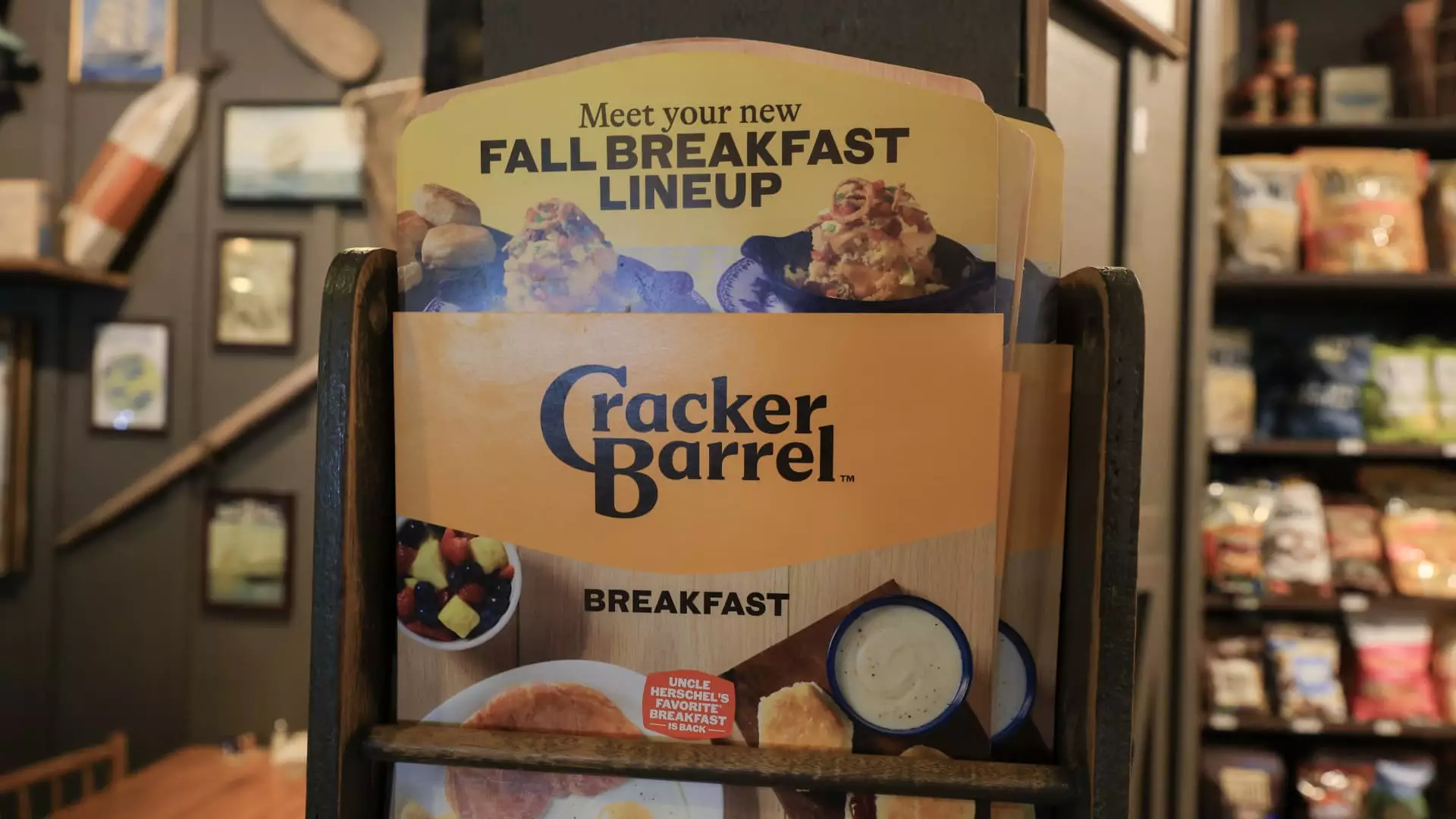Cracker Barrel’s recent logo overhaul signals a strategic attempt to reinvent itself amidst a shifting cultural landscape. While brand refreshes are common, the radical departure from the company’s iconic imagery—removing the man leaning against a barrel—raises questions about authenticity and the core identity of the brand. The move to simplify the logo to just “Cracker Barrel” on a yellow background may seem like an effort to modernize, but it risks stripping away the very elements that created its nostalgic charm. This superficial facelift appears more like a marketing ploy than a thoughtful evolution, indicating a desperation to stay relevant amid declining foot traffic and waning brand loyalty.
The decision to exclude the phrase “old country store” and the change in visual identity seem disconnected from the values the brand has long championed—values rooted in tradition, hospitality, and a sense of community. Instead, there is an unmistakable shift toward a more sanitized, corporate aesthetic that compromises the brand’s genuine history. This move reflects a troubling trend in contemporary branding: prioritizing marketability over meaning. The focus on vague inspirations like scrambled eggs and biscuits feels superficial—perhaps a misguided attempt to connect food with identity, rather than celebrating the heritage that originally defined Cracker Barrel.
Corporate Spin vs. Cultural Reality
Cracker Barrel’s leadership claims the rebranding aligns with a “strategic transformation” aimed at revitalization, but beneath these corporate slogans lies a fragile disconnect with loyal customers. The company insists its “rich history of country hospitality” remains untouched, yet the complete removal of visual cues tied to its identity suggests otherwise. The shift appears to be driven less by authentic consumer insight and more by a desire to obscure the brand’s American roots in favor of a more inclusive, but ultimately more generic, corporate image.
Social media backlash underscores this tension. Conservative voices, including figures like Donald Trump Jr. and Robby Starbuck, perceive the change as a sign of capitulation to progressive social agendas—what they frame as “wokeness”—that threaten traditional American values. This criticism exposes a broader cultural fault line: brands caught between evolving societal demands and the loyalty of longstanding customers who feel their cultural identity is being eroded. Cracker Barrel’s redesign appears to be an alarmingly blunt attempt to appease a modern, more diverse audience, at the cost of alienating its core base.
The resistance from social conservatives reveals a fundamental miscalculation. Instead of engaging with these customers’ conservative sensibilities, Cracker Barrel’s decision to lean into a more neutral, less rooted branding strategy risks alienating its traditional clientele. The company’s internal remarks about “lighter, brighter” stores seem superficial when viewed against the broader context of cultural polarization—this overhaul isn’t just about aesthetics; it’s about perceived surrender of cultural identity.
Corporate Strategy or Cultural Suicide?
At its core, Cracker Barrel’s latest moves unveil a troubling trend: the commodification of American tradition, watered down to a marketable icon while disconnecting from the authentic origins that once made it special. This isn’t just about logo design or interior decor—it exemplifies a broader corporate failure to stand firm on cultural issues that form the foundation of its brand.
The company’s decision to update its look and feel fits into a wider pattern of corporations bowing to societal pressures—often prematurely and recklessly—at the expense of loyal customer segments. When the company’s leadership touts “authentic charm” and “rich history,” it rings hollow against the reality of a branding strategy that appears to erase or diminish that very history.
What’s most troubling is the implied message: American traditions, once integral to a brand’s identity, are now considered obstacles in a race to appeal to a more ideologically amorphous consumer base. This highlights a fundamental weakness in corporate identity—the inability, or unwillingness, to balance progress with authentic cultural roots. Cracker Barrel’s gamble might backfire, diminishing its brand equity and threatening its survival in a competitive landscape increasingly driven by cultural resonance.
In the rush to stay modern, Cracker Barrel risks losing the very soul that made it distinctive. As American consumers become more discerning and vocal about authenticity, brands that abandon their core for fleeting social approval may find themselves drowning in a sea of irrelevance and missed opportunities. For a company that once celebrated country hospitality, the path forward demands more than superficial rebranding; it requires a commitment to genuine cultural continuity, not corporate expediency.

